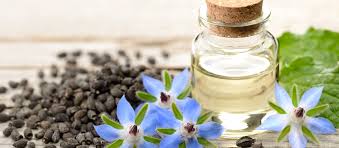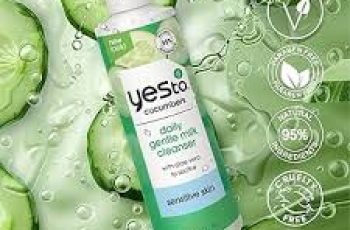
Borage Seed Oil in Skin Care: Benefits, Uses, and How to Know If It’s Right for You
Borage seed oil is a powerful and versatile ingredient found in many premium skin care products.
It offers a luxurious feel, is safe for most skin types—including during pregnancy—and is backed by centuries of use in beauty and medicine.
Used in everything from moisturizers to sunscreens, this soothing oil hydrates skin, reduces redness, and improves the absorption of other products.
However, it’s not for everyone—especially if you have extremely dry skin.
To find out if borage seed oil is right for you, take the dermatologist-developed Baumann Skin Type Quiz to get a personalized skin care routine.
What Is Borage Seed Oil?
Borage seed oil comes from Borago officinalis, a wildflower often called “starflower.” It has been used for over 1,500 years for its medicinal and cosmetic properties.
Ancient texts, including those by Pliny the Elder and Homer, reference “nepenthe”—a calming herbal drink thought to be made from borage leaves and wine.
Today, borage seed oil is extracted through cold pressing, making it a natural, unrefined carrier oil rich in skin-repairing fatty acids.
What Makes Borage Seed Oil Unique?
Borage seed oil is rich in several key fatty acids:
✔ Gamma-Linolenic Acid (GLA)
Helps the skin form ceramides, essential for maintaining a healthy skin barrier.
Borage oil has 2–3x more GLA than evening primrose oil.
✔ Linoleic Acid
Soothes inflammation and calms red, irritated skin.
Often used to treat rosacea and acne-prone skin types.
✔ Oleic Acid
Improves penetration of other ingredients by slightly disrupting the skin barrier.
Can irritate very dry skin or worsen eczema and psoriasis.
What Are the Benefits of Borage Seed Oil in Skin Care?
Borage seed oil is one of the most multi-functional natural oils used in skin care. Here are its top benefits:
🧴 Hydrating: Locks in moisture without clogging pores.
🔬 Anti-inflammatory: Reduces redness and calms skin.
✨ Anti-aging: Rich in antioxidants to support healthy skin aging.
🔒 Occlusive: Forms a protective layer that helps regulate product absorption.
💧 Penetration Enhancer: Helps other active ingredients absorb more effectively.
How Is Borage Seed Oil Used in Products?
You’ll find borage seed oil in:
Moisturizers, Serums, Lip balms, Facial oils, Masks, Cleansers, Sunscreens, Hair care products
Borage oil is non-comedogenic, making it safe to use even near the hairline. In hair care, it hydrates and repairs strands, leaving them soft, shiny, and manageable.
Is Borage Seed Oil Safe?
Yes—borage seed oil is considered extremely safe, even for:
Sensitive skin, Rosacea-prone skin, Pregnant women, Babies
It scores a “1” on the EWG safety scale and has no major safety concerns. However, always check labels if you have known plant or seed allergies.
The Cosmetic Ingredient Review (CIR) panel also confirmed its safety for long-term topical use.
Side Effects and When to Avoid Borage Oil
Borage seed oil is safe for most people, but two situations call for caution:
Extremely dry skin – Oleic acid can disrupt already compromised barriers, worsening dryness.
Eczema or psoriasis – Its barrier-penetrating properties may increase irritation.
If you have these conditions, take the Baumann Skin Type Quiz to identify better-suited oils, like those with higher linoleic and lower oleic acid.
Is Borage Seed Oil Right for Your Skin Type?
Let’s look at how borage seed oil interacts with different skin concerns:
✔ Acne
Borage seed oil is anti-microbial and non-comedogenic, helping to fight acne-causing bacteria without clogging pores. It’s great in acne-safe moisturizers and calming serums.
✔ Rosacea
The linoleic acid in borage oil helps reduce redness and inflammation, making it ideal for rosacea-prone skin. Pair with gentle formulas like niacinamide for best results.
✔ Wrinkles and Aging
Thanks to its high antioxidant content and hydration properties, borage oil supports skin health and may help prevent signs of aging when combined with retinoids or peptides.
✘ Not for Severe Dry Skin
If your skin is very dry, especially from medical conditions, look for oils richer in linoleic acid and lower in oleic acid—like sunflower or evening primrose.
Does Borage Oil Lighten Skin?
Borage oil is a mild tyrosinase inhibitor, meaning it may help slow melanin production, which contributes to hyperpigmentation and dark spots.
However, it’s weak on its own. For best results in treating melasma or dark patches, pair it with:
Niacinamide (a PAR-2 blocker)
Resorcinol or kojic acid (stronger tyrosinase inhibitors)
When to Use Borage Oil in Your Routine
Because borage seed oil is occlusive, it forms a barrier on the skin. That means you’ll want to use it:
As the final step of your routine (over serums)
After retinoids to reduce irritation and lock in moisture
As part of nighttime skin “slugging” routines
It helps control how other ingredients are absorbed, so product layering matters.
Borage Seed Oil for Hair Care
This oil is also fantastic for hydrating hair and smoothing frizz. Its emollient properties help:
Improve shine
Repair damaged cuticles
Moisturize dry scalps without clogging follicles
Borage Seed Oil in Summary
Benefit Description
🧴 Hydrating Moisturizes skin without clogging pores
🔬 Anti-inflammatory Soothes irritated or red skin
✨ Antioxidant Helps prevent skin aging
🔒 Occlusive Controls how other ingredients absorb
💧 Enhancer Boosts product penetration
Final Verdict: Should You Use Borage Seed Oil?
Borage seed oil is a gentle, multi-functional oil that works well for most skin types—especially sensitive, acne-prone, or redness-prone skin.
But for extremely dry or eczema-prone skin, it may not be ideal due to its oleic acid content.
To make sure you’re using the right ingredients and products in the right order, take our custom skin type quiz—it’s the best way to find your ideal routine.
👉 Take the Baumann Skin Type Quiz
Because of its anti-inflammatory properties, borage seed oil is often used in calming creams designed for skin prone to redness, irritation, or post-procedure sensitivity.
Although borage seed oil is gentle, it’s best to patch-test any new product, especially if your skin is reactive or you have a history of sensitivity to plant-based ingredients.
In addition to skincare, borage seed oil is also taken as an oral supplement for its potential benefits in reducing inflammation and improving skin hydration from the inside out.
Its ability to enhance the skin barrier makes borage seed oil particularly helpful during colder seasons when transepidermal water loss is more likely to cause dryness and flaking.
When used regularly in the right concentration, borage seed oil can contribute to a more resilient and youthful-looking complexion by supporting skin elasticity and moisture retention.
Many dermatologists recommend combining borage oil with ceramide-rich moisturizers to reinforce the skin barrier and improve long-term hydration in balanced and oily skin types.
Due to its natural antioxidant content, borage oil may help protect the skin from oxidative stress caused by pollution, UV radiation, and other environmental aggressors.
Unlike heavier oils that can feel greasy or suffocating, borage seed oil has a lightweight texture that absorbs easily, making it suitable for layering under makeup or SPF.
Its non-comedogenic rating means that borage seed oil won’t clog pores, so it can be safely used by people with combination or acne-prone skin as a nourishing treatment.
When paired with hydrating ingredients like hyaluronic acid or glycerin, borage seed oil helps lock in moisture, keeping the skin smooth, plump, and visibly healthier over time.


